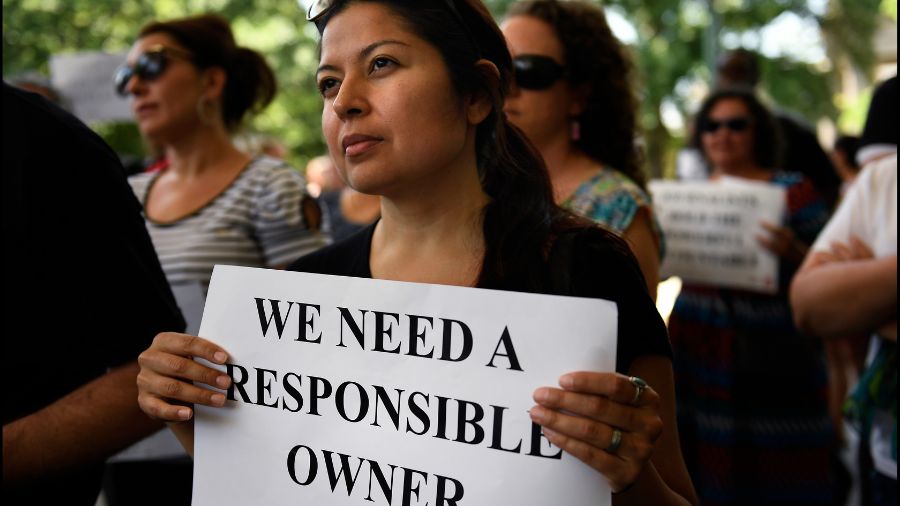Trailblazer retiring from state patrol, but not done fighting for women in law enforcement
Aug 23, 2019, 4:59 PM | Updated: 5:02 pm

Captain Monica Alexander retired from the Washington State Patrol. (Washington State Patrol)
(Washington State Patrol)
Mentor, hero, superstar, inspiration. Those are just some of the words you hear when you ask those who have worked with Captain Monica Alexander to describe her.
On August 16, after 23-plus years, she became the first African American woman in history to retire from the Washington State Patrol.
Making history was nothing new to Alexander.
From patrolling the highways of South Seattle to taking on tough issues at the state Legislature, Alexander routinely broke through barriers during her career at the state patrol, becoming a mentor and a fierce supporter of women in law enforcement.
Alexander’s early career
None of that was part of the plan back when she was a licensed cosmetologist running her own hair salon. While she loved hair and fashion then and now, it wasn’t enough.
“I felt a little confined to owning a business where I would start at 6 in the morning and finish at 10 at night. I felt like it was a lot to do every single day, and I wanted to see the world,” Alexander explained.
Someone told her the best form of education was travel, but if she sold her business, how could she afford to?
Then a light bulb. She could be a flight attendant.
“On a dare, I applied to be a flight attendant and I got hired! So I was a flight attendant for seven years,” Alexander said.
How do you go from hair dresser and flight attendant to cop?
“I was based in L.A. during the Rodney King riots,” Alexander recalled. “I flew into L.A. when L.A. was on fire. I rushed to the television like everybody else and I started watching all of the terrible things happening and I thought there has to be a better way to police our community.”
That desire to give back to the community and be a role model for her new son prompted Alexander to shop around for the right police agency where she could do the most good.
She did ride-alongs in L.A., Las Vegas, Seattle, and other cities that just didn’t click for her.
“I rode with the state patrol one time and I was like this is my agency,” Alexander said. “From that point forward I wanted to be a trooper.”
People tried to discourage her at the time, warning the state patrol had no African American females at that time and that the few they had before had left.
“People said some terrible things about the state patrol. They said they didn’t like African Americans and they didn’t like females … well that’s two strikes against Monica,” she remembered thinking at the time.
But not one to buy into rumor and hype, Alexander wanted to see for herself and if the rumors were true, she wanted to figure out a way to change that.
“If they don’t want to hire African American females … it was my responsibility to be as qualified as possible, be able to pass the tests and be able to meet the standards and see what happens – and I did and I was hired,” Alexander said.
She says, for the most part, those rumors were not true, at least not throughout the WSP. But Alexander admits there is still some of that doubt in all police agencies when it comes to women taking on the job of cop, which is still a predominantly male workforce.
“Sometimes it feels like you have to do ten times better to get half of the credit that you deserve and that can be challenging,” Alexander said.
But she never let any of that stop her.
Alexander on the job
After getting through the academy, she hit the streets as a trooper. Alexander was assigned to South Seattle and loved it. Five years later, she became the first African American woman to ever be promoted to sergeant at the state patrol. After a few more years patrolling South Seattle, she took on challenges in the agency working in the internal affairs and Homeland Security departments. She became the first sergeant ever to work in the Government and Media relations unit, in where she was tasked with helping to ensure smooth communications with the media and the public.
Her work in that unit also led to another first when the news director at KOMO called and asked her to do the TV traffic reports as a state trooper.
“I thought, OK, sign me up, I love that, that sounds so fun,” c recalled thinking. “I didn’t think anybody would watch. I mean who watches the traffic, I thought.”
It was a ground breaking idea, and took some doing to get the state patrol on board, but Alexander became the first state trooper ever to do TV traffic reports. It was a gig she had for six years before handing it off to another trooper, who years later she would marry.
In the years that followed, Alexander helped transform the Government and Media Relations unit, improving the flow of information to the media and the public to what now is considered one of the top such units not just in the state, but the country.
Throughout all of these years, Alexander also mentored other women and build up community trust, especially in communities that have felt ignored by law enforcement.
Government work for Alexander
Nearly 20 years into her state patrol career, now at the rank of captain, Alexander was named the state patrol’s legislative liaison. It’s a huge responsibility that takes an enormous amount of dedication and time to work with state lawmakers on everything from the state patrol’s needs to taking on some tough issues in Washington state.
“It’s the hardest job I’ve ever done and it was 24/7,” Alexander explained. “There were times I’d wake up at 3 o’clock in the morning because I had an idea, something clicked like, ‘Oh my gosh, how did I miss saying this?’ Unless you do it, you don’t know how easy it is to miss that big moment, that big opportunity. It was so much work, but it was so rewarding.”
In the past four years, Alexander had many accomplishments in her work with the Legislature, especially the past couple of sessions where she played a critical role in shedding light on the issue of Missing and Murdered Native American Women.
In addition to helping get legislation passed to finally talk to tribal communities and get an actual idea of how many women were missing — details released in a June report from Alexander and the WSP — she also got two tribal liaison positions added at the state patrol. Alexander says those liaisons, added this last legislative session, are critical to building trust with tribal communities that feel disrespected and ignored by law enforcement on this issue.
“If you feel like all these women are missing or murdered or have been trafficked and don’t know what happened to them and nobody is listening, man, what does that make you feel like,” Alexander said.
Over the past four years, she also played a key role in rape kit reform legislation in Washington state, which finally led to a major victory this year with the passage of legislation. It requires the ten thousand backlogged rape kits to be tested and it provides funding for a new high-tech lab and more staff to get the testing done, as well as several other important changes for sexual assault survivors.
Alexander teamed up with State Rep. Tina Orwall on the year’s long effort.
“She’s an incredible leader,” Orwall said of Alexander.
“I think her ability to navigate the state patrol and the Legislature — a very complex political train — she did it with such grace. I think it’s a huge loss for all of us and for the state patrol,” Orwall said of losing Alexander.
Alexander’s future post-retirement
Alexander has no plans to slow down.
She did not expect to retire from the state patrol quite so soon, but after a recent transfer to head WSP’s Human Resources Division she felt she had hit a dead end, with limited opportunities for further career education and advancement.
Alexander made history during her WSP career. On top of becoming the first and only African American woman to retire form the agency, she was also the first and only African American woman to be promoted to sergeant, lieutenant, and captain at WSP.
Of the 1,100 strong WSP force, there are only five African American women and only 95 women in total.
State Patrol Chief John Batiste admits it’s a concern.
“It’s a very high priority, it’s been a priority for the agency for years. We’ve done quite well by comparison to many years past. But, we have a long ways to go in terms of where we want to be as an agency,” Batiste said, adding he planned to start looking at other police agencies that are having more success recruiting and retaining female officers.
There is only one other female captain at the state patrol now that Alexander has retired. All eight of the district captains are white men. There has also never been a woman promoted to the state patrol’s executive team.
“We’re a young agency in regards to women in position within the agency,” Batiste said.
“When you rise up to the rank of executive levels within the agency in order to be a success, generally it requires quite a bit of experience in this profession and having held certain leadership positions also within the agency,” Batiste said. “We have a lot of young females right now that are at the rank of Lieutenant and our hope is that eventually, we can position those women for leadership opportunities to go higher within the agency.”
Batiste also says the more women they get in the agency, the better chance they’ll have at successfully competing for executive team positions, such as assistant chief.
“That’s true across the board with people of color and minorities in general … we don’t have the numbers that we need in order to have them be able to compete successfully and beat the odds,” Batiste explained.
As for Alexander, Chief Batiste calls her a superstar.
“She’s been a trailblazer, in all that’s been asked of Monica, she’s done a stellar job at it, she’s done very well. She hit it out of the park for me and this agency and I can’t thank her enough for that,” Batiste said.
Asked whether she may have stayed with WSP had she had a path to assistant chief, Batiste said he could not say.
Alexander’s career in law enforcement is far from over, almost as soon as former King County Sheriff Sue Rahr at the Criminal Justice Training Center – the state’s police academy — learned of Alexander’s surprise retirement, she had a job offer.
After taking a couple of weeks of downtime, Alexander will be an advanced instructor at the academy.
While there is some sadness leaving her agency behind, Alexander is excited about her next adventure and has no regrets.
“I felt like a winner being hired by the Washington State Patrol and I still feel that way. I still feel like the State Patrol offered things in my life I would have never had an opportunity for had I not put the voices behind me that were saying it wasn’t a good agency or that it wasn’t a good agency for me and go with my gut,” Alexander said. “I went with my gut.”
The Washington State Patrol was as a family affair for Alexander, with both her husband, who was recently promoted to assistant chief, and son who is a dispatcher, still a part of the state patrol family.













